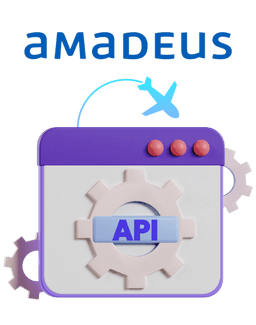
Amadeus API Integration
Achieve complete integration for your travel business by using OneClick's Amadeus API Integration services. Integrated to minimise elaborate booking procedures, this solution integrates your travel website with 400+ airlines and hotels, as well as car rentals globally, presenting your users with live availability and rates. Reduce your complex operation management, improve your customers’ interactions, and outcompete your competitors in the travel business. Ready to make your own travel portal?
Certified Amadeus API Integration Company
Compliant with GDPR & CCPA
IP Rights & NDA protection
50+
Developers
1 - 10
Years of Experience
30
Active Clients
135
Completed Projects
8
Countries Served
About Amadeus API Integration

Founded in 1987 by Air France, Iberia, Lufthansa and SAS, Amadeus GDS is a globally dominant distribution system with a market share of over 40 percent. Initially launched as a European alternative to the American Sabre GDS, it now serves travel businesses in 190 countries. The Amadeus API suite enables easy booking, price comparison and personalized travel experiences.
The Amadeus Booking API supports a wide range of customers, including online travel agencies (OTAs), travel management companies (TMCs), host travel agencies, air consolidators, and various digital travel vendors. Amadeus facilitates the discovery, comparison, and booking of inventory through a set of application programming interfaces (APIs). These include the following:
1. Fight booking APIs provide access to deals from over 400 airlines, including 130 low-cost airlines, ancillary services from 150 airlines, and fare groups from over 100 airlines.
2. In addition to the above, Amadeus Hotel Booking APIs seamlessly connect to a network of over one million hotel properties from 15,000 providers, making it a leader in Amadeus Inc. and tech travel.
3. For tours and activities, the Amadeus booking system provides APIs for tours and activities and integrates information from 101 tour operators. To meet mobility needs, car rental APIs connect to 75 suppliers serving nearly 1800 cities.
4. Rail Booking APIs: Rail enthusiasts can enjoy the benefits of these rail booking APIs, which include content from 90 rail operators.
5. Travel Insurance APIs: Booking and buying travel insurance is now easier with Amadeus travel insurance APIs from 22 insurance companies. In addition to those detailed above, a range of other travel APIs add to Amadeus’ extensive portfolio.
Amadeus Booking System introduced a new dimension to using APIs in 2000, and today, they offer various APIs for web and mobile apps, categorised into self-service and enterprise options. The OneClick IT Consultancy team has practical experience working with both categories. In the following sections, we will discuss the specific features of each group in depth and highlight the essentials to seamlessly integrate these APIs into your project.
Growth of OneClick IT Consultancy
- 12+Years of Experience
- 700+Project Deployment
- 150+Expert Developers
- 40+Active Clients
- 30+Frameworks
Modernize Your Business with Amadeus Travel API Integration
Self-Service APIs
The Self-Service API Catalog: Unveiling Content and Functionality
Building Integrations with Self-Service APIs
Transitioning to Production: Ensuring App Viability
The Crucial Role of Airline Consolidators in Flight Booking Apps
Finding Assistance in Your Integration Journey
Pricing Conditions for Self-Service Subscription
The Self-Service API Catalog: Exposing Structure and Purpose

Starting in 2024, Amadeus' self-service suite will have 37 APIs, organized into five groups.
Air APIs assist in booking automation and provide features such as seat selection, affordable flight destination search from a particular city, and more. These APIs also provide advanced features such as autocomplete airport search, information on local travel habits (for example, most booked destinations or busiest travel periods), and local flight price analysis based on historical data from the Amadeus booking system.
Hotel APIs have completely automated the hotel booking process, as well as enriched search results with ratings and provided autocomplete suggestions for better discovery.
Destination Content provides detailed information about the top attractions, tours, and activities of a given location. Users can also view popularity scores based on specific latitude and longitude coordinates. Destinations are carefully evaluated based on four criteria: sightseeing, restaurants, nightlife, and shopping.
Trip APIs use artificial intelligence to identify whether a user is scheduling a trip for business or leisure purposes, helping to personalize a user’s past search patterns and bookings.
The COVID and Travel Safety APIs allow retrieving detailed safety data of COVID-19 travel restrictions for 40,000 cities and 200 countries. Recently, the fast-growing travel planning platform Trip.com integrated Amadeus safety content. This integration allows them to provide critical information about entry testing and quarantine requirements at their airports. Using the Amadeus Airport API, Trip.com and other services can track safety measures and provide up-to-the-minute information on specific airport protocols.
Integrating the solutions provided by the Amadeus API PHP Toolkit connects developers directly to these advanced travel intelligence tools. For businesses looking to upgrade their travel platform while strategically controlling it, it’s important to know the Amadeus Enterprise API pricing.
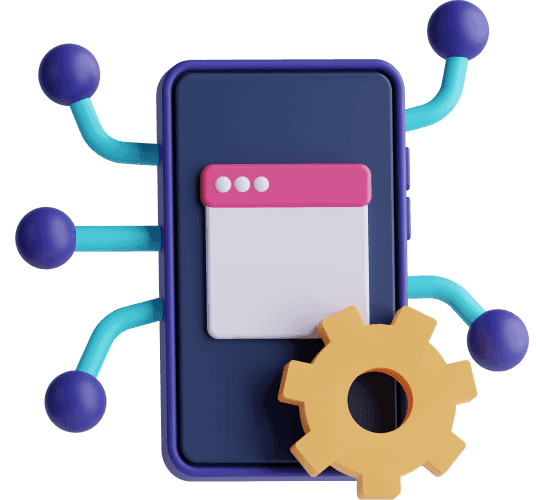
Building Integrations with Self-Service APIs
Starting collaboration with the Self-Service API is a simple process. To get started, create an account and, upon confirmation, generate an access token that will serve as verification of your authorization as a developer.
Amadeus supports engineers with a wide toolkit such as booking algorithms, test settings, sample code, and SDKs, making it easy to add APIs. Check out the official GitHub repository for libraries that help implement APIs for multiple languages such as Ruby, Python, Java, Node.js, .NET, Kotlin (for Android), and Swift (for iOS).
No matter which programming language is chosen, developers can further optimize the integration by testing in a sandbox environment. Amadeus gives a certain number of free API calls every month, which can range from 200 to 10,000, depending on the API. This system allows your application to make one call every 100 milliseconds.
Furthermore, the Amadeus booking software comes with ready-made booking pipelines for flights and hotels that are easy to use. These pipelines are well thought out and consist of three back-to-back calls in a single intuitive and simple sweep.
Search: This step provides a list of the best priced flights or hotels to be used for booking.
Price: In this step, the price call is made. At this time, the availability and prices of the chosen flight are obtained as well as the hotel rates and their terms. This step ensures that users are updated before proceeding.
Book: The final step of the pipeline is called Book which is responsible for creating the flight order. In the case of hotels, a reservation is made in the hotel’s property management system. This seamless finalization completes the booking and connects users to the travel services they have chosen.
Following this flow, developers focus on a single object (request) that they can change at each step. Developing with the Amadeus Booking API is streamlined compared to traditional methods of creating requests as it eliminates the need to create separate requests for each step of the process.
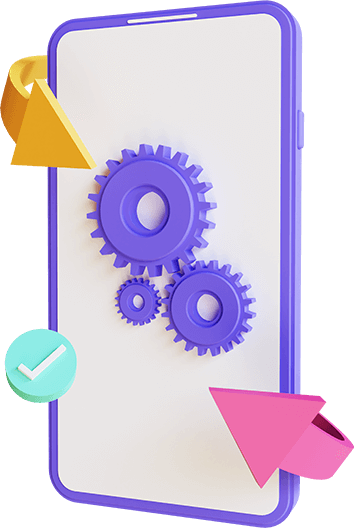
Moving an Application to a Live Environment: Confirming its Functionality
The process of converting your application into a live environment is called production. In this phase, the system will be able to collect a wide range of real-world data and use unlimited feature calls.
This phase further consists of two sub-parts:
- Obtaining Production Key: Fill in all the sections of the provided personnel and billing details template.
Choose one of the listed payment methods.
Accept by signing the Terms of Service document on DocuSign.
- Provisioning validation and personal environments: The Amadeus booking software development team allocates a pre-defined period of up to 72 hours to validate the submitted application and set up the custom environment.
The allotted time is reduced to a few hours for subsequent applications.
An automated email is then sent allowing validation, thus obtaining production access.
This process is the same across all self-service applications except for the Flight Create Orders API, which 'completes' the air booking. To incorporate this API into production, it is necessary to follow Amadeus guidelines, comply with local directive laws, and confirm that the API will be available in your location.
Most importantly, there is still an issue to be resolved related to signing the agreement with the airline consolidator. OneClick IT Consultancy, being an expert in the travel tech industry, fully helps these PTO companies to meet these requirements, making their integration easier.
The Crucial Role of Airline Consolidators in Flight Booking Apps
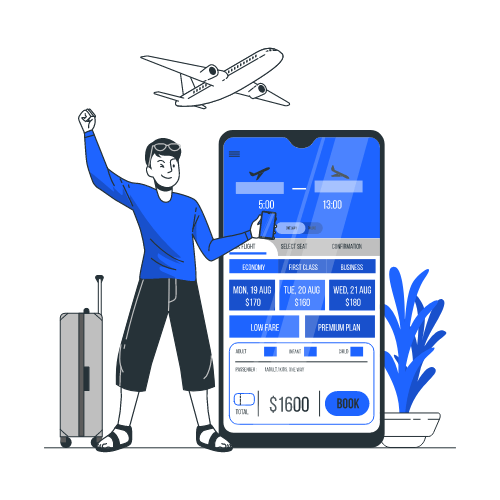
Accreditation from authoritative bodies such as the Airline Reporting Corporation (ARC) in the US or the International Air Transport Association (IATA) worldwide is mandatory for issuing flight tickets. Check out our articles on ARC accreditation options and how to get IATA accreditation to understand the certification process in more depth.
If you want a solution for your problem with a community-driven focus, you can ask the Amadeus for Developers community on Discord or StackOverflow, or hire OneClick IT Consultancy’s professional network. OneClick enriches this knowledge base with its practical experience in the field and with over 300 questions posted at these platforms regarding the Amadeus API integrations. Also, OneClick can help traverse the travel tech forum Techtalks, where business questions concerning the Amadeus API integration are posed, contributing seasoned insights and valuable contributions to these discussions, alongside the guidance of OneClick experts.
Looking for Help while Integrating with our Systems

The Amadeus booking system API has well-structured API documentation that provides step-by-step instructions for easing the process of integration. Their FAQ page also adds value as new questions are being answered regularly. Unfortunately, GDS does not provide telephonic or live chat support for the Self-Service API catalogue, but you can submit your queries to the Developer Relations team through the contact form. Be aware, however, that they might not respond in a timely manner. In this case, however, OneClick IT Consultancy, because of its specialisation in Amadeus API Integration, provides help and guidance in Amadeus Travel API Integration by servicing businesses that require more direct support.
If you want a solution for your problem with a community-driven focus, you can ask the Amadeus for Developers community on Discord or StackOverflow, or hire OneClick IT Consultancy’s professional network. OneClick enriches this knowledge base with its practical experience in the field and with over 300 questions posted at these platforms regarding the Amadeus API integration. Also, OneClick can help traverse the travel tech forum Techtalks, where business questions concerning the Amadeus API integration are posed, contributing seasoned insights and valuable contributions to these discussions, alongside the guidance of OneClick experts.

Amadeus Enterprise API: The Ultimate Solution for Large Travel Businesses
For larger businesses, Amadeus offers advanced functionalities with Enterprise API, SOAP and REST options. These APIs provide ticketing services, booking management and better integration with airline consolidators.
In the era before the existence of democratic self-service catalogues, exclusive access to GDS content through the SOAP API, designed in 1998, was reserved for major players in the travel industry certified by ARC or IATA.
Amadeus booking software is currently migrating from SOAP to REST, but it is still highly dependent on SOAP to access enterprise-level features. To qualify for an enterprise subscription, the size of the business must already be large.
Enterprise customers need much more than access to a wide range of services to get a custom pricing strategy, round-the-clock technical support and a manager who personally resolves their problems. This marks a shift in strategy directed at the Enterprise API, which is targeted at the large players in the travel industry.
Eligibility for Amadeus Enterprise API pricing is limited to only certain businesses that have an IATA or ARC licence. A signed agreement, sandbox testing, and a development team skilled in Amadeus API integration are prerequisites for seamless integration of systems.
Enterprise API Catalog: Comprehensive Content and Functionality Unveiled
- 1
Ticketing Services at the Time of Booking
The self-service level is for organizations that do not have travel accreditations, preventing them from performing airline ticketing directly. However, enterprise clients do have the necessary credentials to both issue and manage e-tickets. Amadeus automates every step of the ticketing process, and gives enterprise clients the option to fully control their flight bookings.
- 2
Booking Management
These REST and SOAP services allow clients to make bookings for flights and other services. Management of personal name records (PNR) is simplified with respect to all tasks such as search, retrieval, display, editing, adding and deleting PNR elements.
- 3
Car Rental and Transfers: Empowering Systems with SOAP APIs
In the category of Car Rental, the SOAP APIs in this category allow the creation of a sophisticated car rental reservation system, or the integration of car rental with your online travel agency (OTA).
- 4
Rail Services: Enhancing Travel Platforms with SOAP APIs
A trio of SOAP APIs in the Rail category are ready to boost the development of an independent railway reservation system or enrich the travel platform with a dedicated rail-related module.
Modernize Your Travel Business with Amadeus API Integration Services

Amadeus API Certification Process
Before using Amadeus' services, your application must go through a setup process that includes validation and testing of your app's interface with their enterprise API. Compared to self-service subscriptions, this automation phase is quite long, lasting weeks rather than days.
For developers, the certification process includes the following steps:
- Perform a sequence of requests corresponding to different standard scenarios, such as one-way travel, round trips, and family travel for families with adults and children.
- Sign up for each call with your unique ID.
- Send a log containing requests and responses to Amadeus.
- Wait for a response.
- Reply to comments, correct errors, and submit another log.
- Repeat the waiting process.
The waiting period is usually the longest part of the whole process. In in-flight booking integrations, most issues and comments arise during the interval between booking and ticketing. According to Amadeus’ official website, in a self-service subscription, this step is handled by an authorised integrator, reducing the validation period to no more than three days.
The encouraging news for enterprise customers engaged in flight booking is that once the primary workflow, from search to ticketing, is implemented, adding additional features like seat maps becomes a relatively quick process.
After successful validation after several iterations, Amadeus moves the integrations to a production environment, allowing them to work with real data.
Selectable Benefits of Amadeus Enterprise Support Services
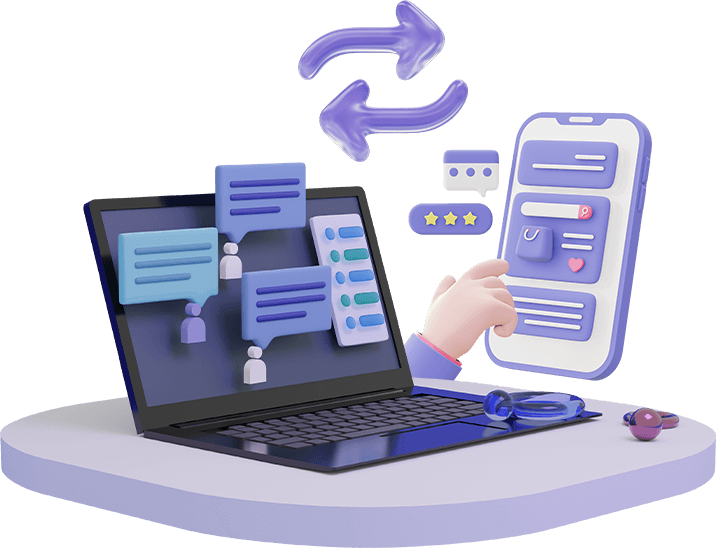
A contract or SLA with Amadeus will define the terms of technical support for your enterprise subscription.
Usually, the GDS offers the provision of a dedicated account manager and support team who stand ready to respond to your questions about configuration, account adjustments, and other assistance you may require. This means when concerns emanate during the development or production phase, you may hand over the problem to Amadeus experts and contact them through email and get a solution almost immediately.
Key Factors Before Integrating Amadeus APIs
Comparative Overview of GDS Services
Today, travel companies have to choose from one of three major global distribution systems (GDS), including Amadeus, Sabre, and Travelport. These systems started out as flight booking systems but have now expanded to cover a variety of other products, such as hotels, car rentals, and additional services. Traditionally, US-based companies preferred Sabre. Europe adopted Amadeus, while Travelport was typically recommended for companies operating in Africa and the Middle East. The coverage, subscription models, and features of all three global distribution systems (GDS) released are similar. The differences lie in the finer details of the contracts and pricing structure offered for each specific geographic region. Therefore, it is not uncommon for US OTAs to use Amadeus, while their European or Middle Eastern counterparts prefer Sabre. There is often regional convergence and divergence in operational strategies.
Strategic Factors for Secondary Global Distribution Systems (GDS)
Today, travel companies must choose one of three primary global distribution systems (GDS), including Amadeus, Sabre, and Travelport. These systems began as flight booking systems but have now expanded to cover a variety of other products, such as hotels, car rentals, and additional services. Traditionally, US-based companies preferred Sabre. Europe was associated with Amadeus, while Travelport was typically recommended for companies operating in Africa and the Middle East. The coverage, subscription models, and features of all three global distribution systems (GDS) offered are similar. The differences lie in the finer details of the contracts and pricing structure offered for each specific geographic region. Therefore, it is not uncommon for US OTAs to use Amadeus, while their European or Middle Eastern counterparts prefer to adopt Sabre. There is often regional convergence and divergence in operational strategies.
Predictable simplicity in GDS API integration: A Welcome Development
Undoubtedly, this is true. There seems to be a slight shift from SOAP to REST APIs across all global distribution systems (GDS). However, it is useful that the Amadeus REST APIs are extensively documented and easy to use. The shift from complex SOAP protocols to more efficient REST APIs is still ongoing, but the importance of domain knowledge and practical work experience in GDS API integration is still crucial. Engineers knowledgeable about the GDS world and travel systems and processes still make a significant contribution to the development of travel applications and, therefore, significantly reduce time and financial costs.
Receive OneClick’s Professional Amadeus API Integration Services
Comprehensive Professional Competence
Our specialists understand the intricacies of the travel industry's workings and hold years of experience alongside profound Amadeus API knowledge. Tailor Made to Specifications With Wranglers Custom Dry Cleaning tailor made to your specific needs whatever they might be will get the attention they deserve.
Seamless Integration Process
Our design is smooth and easy to integrate, and we prefer to ensure that everything works without much complication. Every single one of the technical details is managed so you can concentrate on your business.
Customized Solutions
At our company, we design and build products that solve an issue at hand and are particular to the client’s needs a basic step that makes a world of difference. That is why our team collaborates with you to know what you want so we can achieve applicable solutions in line with your set plans.
Accurate & On-time Submission
In the travel sector, time is of utmost value. Considering your Amadeus API integration project deadlines, we guarantee its completion within the set timeline, thanks to our proficient project management skills and 'Agile' approach.
Advanced Maintenance Services
Securing integration of the required features and functions is only part of the solution. We assist you in achieving your business objectives by offering Amadeus API integration support and maintenance services even after the integration process is completed.
Protection Policies
In this regard, our top priority is the security of your data and customer information, thus allowing you to relax, knowing that your confidential information is protected and perfectly safe.


